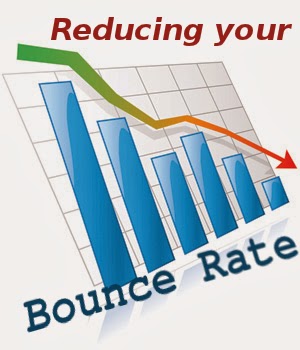Website Performance and Optimization : SEO and Web Designing Tips
Why Does Website Performance Matter?
Sure, this would appear to be a really clear concept, yet have you truly considered why your site performance matters? Here are five factors to think about when measuring your website's performance.1. Increased website performance can reduce your costs. Most hosting providers charge dependent upon bandwidth and storage usage. Numerous performance practices will reduce your storage costs and fundamentally reduce your bandwidth usage.
2. Site performance has an immediate impact on revenues. It is well realized that site performance specifically influences client surrender rates. Essentially put: the more clients that don't surrender sessions on your site, the higher your conversion rates will be, and the higher your revenue will be. This is particularly imperative for ecommerce sites.
3. Web crawlers like Google consider site speed when deciding pursuit rankings. Don't let something that can undoubtedly be controlled like "poor site performance" harm your rankings! Despite the fact that content is still more paramount to positioning than performance, why even take a risk?
4. Mobile devices will soon out number desktop traffic. Consistently more clients are getting to sites with Mobile Phones & Tablets, and mobile devices will soon represent the larger part of all web traffic. Mobile clients are much more touchy to poor page loading and will relinquish the site much faster than a desktop client. In the event that you disregard this section of clients, you will be abandoned.
5. Everything descends to better client experience. This goes without saying, correct? No it doesn't! I can't exaggerate the criticalness of client experience. In the event that the client has a poor experience they will forsake the session, and monotonous poor experiences could lose you a client/customer forever.
Improvement Practices to Improve Page Load Time
You get the point, correct? Website performance is essential and can't be disregarded. Right away how about we examine a couple of best practices to enhance your website's page load time.
1. Reduce what you send to the browser. Reducing the amount data transferred to the browser ought to be your number one necessity in terms of diminishing page load. This might be achieved by compacting and advancing images and dependably serve scaled-to-size images. Uproot any unused CSS or Javascript and afterward minify your CSS and Javascript. At last empower a server side compression like Gzip. Most present day browser backs this data compression, and it will altogether reduce the measure of data passed from the server to the customer browser.
2. Advance what you send to the browser. Uproot all Javascript slips and 404 lapses that happen on the page. These sorts of appeals can result in long postpones and regularly cause browsers to crashes. Additionally utilize effective CSS selectors. A poor performing selector that need to inquiry the whole DOM article can altogether ease off your load time. Uproot any unnecessary markup, evade CSS interpretations & imports, and put your CSS presentations in the report header. Search for open doors to gather and join CSS documents and Javascript records. At long last, concede parsing of Javascript on page load is to a great degree accommodating to mobile devices.
3. Let the browser store assets for you. Exploit browser caching. It doesn't cost you anything, and it fundamentally reduces the amount of solicitations for static assets from your server. Verify you read the Google's Page Speed segment about browser caching best practices to comprehend it completely. This alone will reduce your server load and enhance client experience.
4. Execute Data Caching from the server side. One frequently neglected caching choice is data and server side caching. From the provision side, you can pick which parts of the page might be reserved on the server. Case in point, headers and footers once in a while change and might be reserved from the server side utilizing procedures like yield caching. Element content conveyed from a database ought to likewise be stored when conceivable. Content conveyed from data reserve is typically put away in memory on the server, so the server can get to and convey the data quicker than making a round outing to the DB. Make a point to execute data caching for the heaviest asked for territories of your site!
5. Reduce DNS look-ups and redirects. Reduce the amount of special space asks for however much as could be expected. This will reduce the amount of DNS lookups, which might be costly in the loading methodology. Additionally guarantee that your DNS Time to Live (TTL) are not excessively low on the grounds that this constrains a few browsers to accomplish more successive and unnecessary DNS lookups. At long last, reduce or wipe out unneeded redirects.
There are numerous diverse stages and schemas accessible, yet these concepts are the same over every one of them, whether its Linux/PHP or Windows/.NET or some other system. There are additionally some superb improvement apparatuses to oversee site performance, for example, Firebug, Chrome, and so on. By and by, I discover the Firefox – Fire Bug advancement instrument with the Google Page Speed Plugin as my most important devices in this procedure. These two apparatuses together will permit you to see each asset that is downloaded and will rapidly recognize 404 and Javascript blunders. You can see the headers to check whether the assets are packed and perceive to what extent it takes to download every one. Your target objective ought to be 3 seconds or less for page load time, before you turn on browser caching. Begin with the home page and other high traffic entrance pages, then as time grants, hit alternate pages.
Well that is it for the present… Happy performance advancing, and recollect that: its everybody's obligation to oversee site performance, from visual fashioners to designers and even content distributers.



